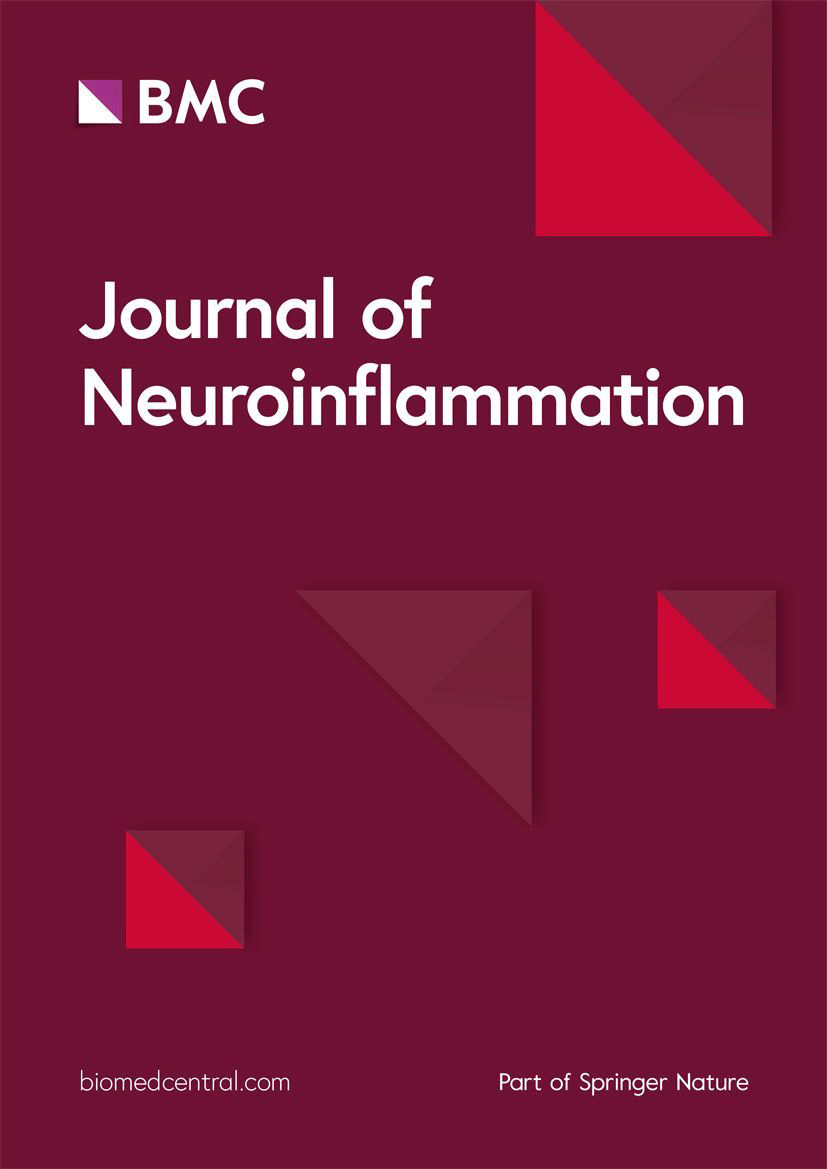iPLA2β loss leads to age-related cognitive decline and neuroinflammation by disrupting neuronal mitophagy
IF 9.3
1区 医学
Q1 IMMUNOLOGY
引用次数: 0
Abstract
During brain aging, disturbances in neuronal phospholipid metabolism result in impaired cognitive function and dysregulation of neurological processes. Mutations in iPLA2β are associated with neurodegenerative conditions that significantly impact brain phospholipids. iPLA2β deficiency exacerbates mitochondrial dysfunction and abnormal mitochondrial accumulation. We hypothesized that iPLA2β contributes to age-related cognitive decline by disrupting neuronal mitophagy. We used aged wild-type (WT) mice and iPLA2β−/− mice as natural aging models to assess cognitive performance, iPLA2β expression in the cortex, levels of chemokines and inflammatory cytokines, and mitochondrial dysfunction, with a specific focus on mitophagy and the mitochondrial phospholipid profile. To further elucidate the role of iPLA2β, we employed adeno-associated virus (AAV)-mediated iPLA2β overexpression in aged mice and re-evaluated these parameters. Our findings revealed a significant reduction in iPLA2β levels in the prefrontal cortex of aged brains. Notably, iPLA2β-deficient mice exhibited impaired learning and memory. Loss of iPLA2β in the PFC of aged mice led to increased levels of chemokines and inflammatory cytokines. This damage was associated with altered mitochondrial morphology, reduced ATP levels due to dysregulation of the parkin-independent mitophagy pathway, and changes in the mitochondrial phospholipid profile. AAV-mediated overexpression of iPLA2β alleviated age-related parkin-independent mitophagy pathway dysregulation in primary neurons and the PFC of aged mice, reduced inflammation, and improved cognitive function. Our study suggests that age-related iPLA2β loss in the PFC leads to cognitive decline through the disruption of mitophagy. These findings highlight the potential of targeting iPLA2β to ameliorate age-related neurocognitive disorders.iPLA2β 的缺失会破坏神经元的有丝分裂,从而导致与年龄相关的认知能力下降和神经炎症
在大脑衰老过程中,神经元磷脂代谢紊乱会导致认知功能受损和神经过程失调。iPLA2β的突变与神经退行性疾病有关,这些疾病对脑磷脂有重大影响。iPLA2β的缺乏会加剧线粒体功能障碍和线粒体的异常积累。我们假设,iPLA2β 通过破坏神经元的有丝分裂而导致与年龄相关的认知能力下降。我们使用老龄野生型(WT)小鼠和 iPLA2β-/- 小鼠作为自然衰老模型,评估认知能力、皮层中 iPLA2β 的表达、趋化因子和炎症细胞因子的水平以及线粒体功能障碍,并特别关注有丝分裂吞噬和线粒体磷脂谱。为了进一步阐明 iPLA2β 的作用,我们采用了腺相关病毒(AAV)介导的 iPLA2β 在老年小鼠中的过表达,并重新评估了这些参数。我们的研究结果表明,老龄大脑前额叶皮层中的 iPLA2β 水平明显下降。值得注意的是,iPLA2β缺陷小鼠的学习和记忆能力受损。老龄小鼠前额叶皮质中 iPLA2β 的缺失导致趋化因子和炎症细胞因子水平升高。这种损伤与线粒体形态的改变、帕金不依赖的有丝分裂途径失调导致的 ATP 水平降低以及线粒体磷脂谱的变化有关。AAV介导的iPLA2β过表达缓解了原发性神经元和老年小鼠PFC中与年龄相关的帕金依赖性有丝分裂途径失调,减少了炎症并改善了认知功能。我们的研究表明,与年龄相关的iPLA2β在PFC中的缺失会通过破坏有丝分裂而导致认知功能下降。这些发现凸显了以 iPLA2β 为靶点改善与年龄相关的神经认知障碍的潜力。
本文章由计算机程序翻译,如有差异,请以英文原文为准。
求助全文
约1分钟内获得全文
求助全文
来源期刊

Journal of Neuroinflammation
医学-神经科学
CiteScore
15.90
自引率
3.20%
发文量
276
审稿时长
1 months
期刊介绍:
The Journal of Neuroinflammation is a peer-reviewed, open access publication that emphasizes the interaction between the immune system, particularly the innate immune system, and the nervous system. It covers various aspects, including the involvement of CNS immune mediators like microglia and astrocytes, the cytokines and chemokines they produce, and the influence of peripheral neuro-immune interactions, T cells, monocytes, complement proteins, acute phase proteins, oxidative injury, and related molecular processes.
Neuroinflammation is a rapidly expanding field that has significantly enhanced our knowledge of chronic neurological diseases. It attracts researchers from diverse disciplines such as pathology, biochemistry, molecular biology, genetics, clinical medicine, and epidemiology. Substantial contributions to this field have been made through studies involving populations, patients, postmortem tissues, animal models, and in vitro systems.
The Journal of Neuroinflammation consolidates research that centers around common pathogenic processes. It serves as a platform for integrative reviews and commentaries in this field.
 求助内容:
求助内容: 应助结果提醒方式:
应助结果提醒方式:


